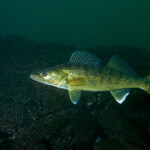Tri Marine responds to Pacific tuna treaty lockout
The U.S. State Department has decided to lend a hand to American tuna boats that have been barred from fishing in areas of the Pacific Ocean after the fleet failed to pay USD 67 million as part of its obligation to the South Pacific Tuna Treaty.
An official for the department said that there was communication with the island nations as of 7 January, and that the office was hopeful that such talks would help to generate some sort of resolution, reported the San Diego Union-Tribune.
“Our judgment at this point is that the best way forward for all parties would be for the Pacific Island parties to revise the terms for the U.S. fleet for 2016,” the official told The Tribune. “The U.S. tuna fishing industry now is unable to afford the fishing access envisioned in the Statement of Intent for 2016.”
However, Transform Aqorau, the chief executive of the Parties to the Nauru Agreement, or PNA, remains firm in not presenting licenses to boats that cannot front the fee. “We are not interested in boats that cannot pay,” he said to The Tribune.
The PNA controls the issuance of fishing licenses and allots fishing days for the waters nearby the Federated States of Micronesia, Kiribati, Marshall Islands, Nauru, Palau, Papua New Guinea, Solomon Islands and Tuvalu. It makes up a part of the Pacific Islands Forum Fisheries Agency.
Without the U.S. fleet licensed to fish PNA waters, Aqorau said that more competition for local entrepreneurs could be a possibility. “It is really an internal problem for the U.S.,” he said. “It has nothing to do with the Pacific Island nations.”
One of the U.S. companies that has decided not to pay, Tri Marine, issued a statement claiming that the PNA’s admittance system was “broken.”
“We have always maintained that, in its current form, (the treaty) fails to retain the most value for the resource owners because the Vessel Day Scheme places value on fishing days alone, rather than the tuna itself,” Tri Marine said.
While the company agreed to the conditions of the South Pacific Tuna Treaty in August, it has since found otherwise. Tri Marine has said it “is focused in good faith on helping to fix a broken system involving 17 different Pacific Island parties.”
After a difficult year for U.S. tuna operators in 2015, where prices dropped considerably, some U.S. representatives are concerned that being locked out of PNA waters could seriously hinder the business even further.
“An extended prohibition against the U.S.-flag tuna fleet fishing in the treaty area may well bankrupt the fleet and jeopardize the thousands of American jobs it supports,” wrote Rep. Duncan Hunter, R-Alpine, in a letter to the State Department at the beginning of January.
The Global Companies, which has 14 tuna boats that typically fish in PNA waters, has agreed to pay its way (USD 17 million) but has said it cannot cover the cost for the entire U.S. tuna fleet, according to The Tribune.
Major tuna companies like Chicken of the Sea and Bumble Bee get some of their fish from vessels that fish in the PNA system.






Share